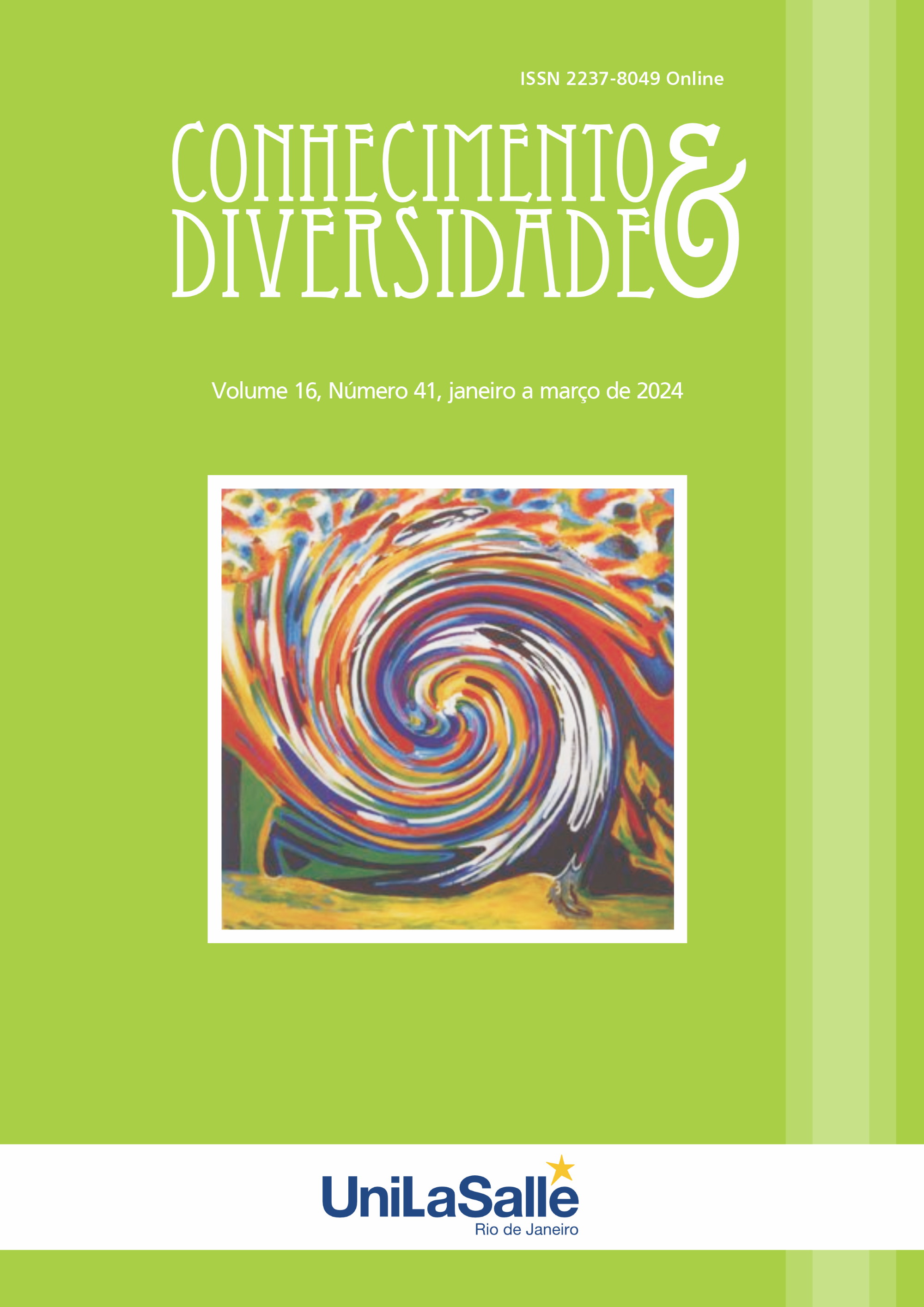O PAPEL DAS TECNOLOGIAS DE INTELIGÊNCIA ARTIFICIAL NA SENSIBILIZAÇÃO E NA EDUCAÇÃO DOS UTILIZADORES ATRAVÉS DAS REDES SOCIAIS ELECTRÓNICAS (ESTUDO DE INQUÉRITO SOBRE UMA AMOSTRA DE ESTUDANTES UNIVERSITÁRIOS DO QATAR)
DOI:
https://doi.org/10.18316/rcd.v16i41.11524Palavras-chave:
Inteligência artificial, plataformas de redes sociais, sensibilização, educaçãoResumo
O objetivo do presente estudo foi identificar os aspectos em que as tecnologias de inteligência artificial (IA) são utilizadas nas plataformas das redes sociais e destacar as tecnologias de IA utilizadas na criação de conteúdos educativos e de sensibilização através das redes sociais electrónicas, na perspetiva dos estudantes da Universidade de Thi Qar, no Iraque. O estudo adoptou uma abordagem descritivo-analítica utilizando um método de inquérito numa amostra de 225 estudantes do sexo masculino e feminino da Universidade de Thi Qar, seleccionados aleatoriamente. Os resultados do estudo revelaram o seguinte: A utilização de tecnologias de IA para transformar o conteúdo publicado nas plataformas das redes sociais de uma forma abstrata para uma forma tangível foi considerada o aspeto mais importante de acordo com os participantes no estudo. As tecnologias de IA contribuem para a sensibilização e a educação dos utilizadores através da disponibilidade de programas que detectam e combatem as notícias falsas. As tecnologias de IA ajudam a encurtar o tempo para os destinatários, fornecendo aos editores ferramentas e capacidades para resumir as notícias de uma forma adequada para o público, evitando o tédio e informações longas.
Referências
Abdel Rahman, R. H. (2021). Development of Health Awareness Among Al-Azhar Secondary Education Students. Fayoum University Journal of Educational and Psychological Sciences, Vol. 15, No. 15, Egypt.
Abdel Razak, M. M. (2022). Artificial Intelligence Techniques in the Media: Reality and Future Developments - An Applied Study on Communication Professionals in Egyptian and Arab Media. Egyptian Journal of Media Research, No. 81, Egypt.
Al-Marzouki, A. A. (2021). The Role of Social Media Networks in Shaping Youth Attitudes Towards External Events. Journal of Research, Faculty of Arts, Vol. 32, No. 124, Egypt.
Awkal, L. (2021). The Role of Artificial Intelligence Algorithms in Quality Control Operations - A Case Study: Misur Plastics Industries Factory, Syria. Unpublished Master's Thesis, Syrian Virtual University, Syria.
Bokova, I. (2012). The World Program for Human Rights Education, United Nations Publications, Phase II, New York.
Bou Mkhaila, K. (2023). Adapting the Media Industry to Artificial Intelligence Technology in the Media - Capabilities According to Usage. Digitization Journal of Media and Communication Studies, Vol. 3, No. 2, Algeria.
Boukhari, M. (2023). The Use of Artificial Intelligence in the Media: A Critical View of Usage Limits and Press Prospects. Digitization Journal of Media and Communication Studies, Vol. 3, No. 2, Algeria.
Di Cui & Fang Wu (2021). The influence of media use on public perceptions of artificial intelligence in China: Evidence from an online survey‖, Information Development, Vol. 37(1).
Greenfield, David. (2021). AI-Enabled Cameras Help Solve Safety, Quality and Efficiency Issues, Automation World, 7 June.
Irimia R, Gottschling M (2016). Taxonomic Revision of Rochefortia Sw. (Ericaceae, Boraginales). Biodiversity Data Journal 4: e7720.
Jaidour, S. (2013). Research Methods in Social Sciences, Damascus University Publications, Syria.
Jason, Whittaker. (2019). Artificial Intelligence And The Future Of Journalism‖ , New York: Routledge.
John, V. Pavlik. (2019). Journalism In The Age Of Virtual Reality: How Experiential Media Are Transforming News‖, New York: Columbia University Press.
Krizhevsky, I. Sutskever, G.E. Hinton. (2012). Imagenet classification with deep convolutional neural networks, Adv. Neural Inform. Process. Syst
Salem, D. F. (2021). The Effectiveness of Using Artificial Intelligence Techniques on Social Media Sites from the Perspective of Educational Media Students: Facebook. Journal of the Faculty of Arts, Vol. 20, No. 3, Part I, Egypt.
Downloads
Publicado
Edição
Seção
Licença
Copyright (c) 2024 Rihab Jawad Kadhim

Este trabalho está licenciado sob uma licença Creative Commons Attribution 4.0 International License.
Conforme recomendado pelo o Public Knowledge Project, a RCD adota para seus artigos uma licença CREATIVE COMMONS: Atribuição CC BY 4.0.
Esta licença permite que outros distribuam, remixem, adaptem e construam sobre o seu trabalho, mesmo comercialmente, desde que lhe dêem crédito pela criação original.
Esta é a licença mais adequada oferecida.
Recomendado para a máxima divulgação e uso de materiais licenciados.



